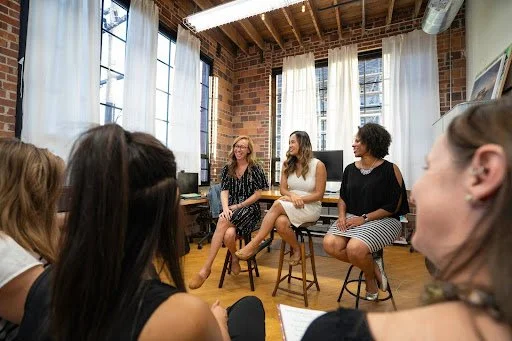Gotcha! How to Ask Open-ended Questions During Interviews
By EmployDiversity
Typical interview formats involve job candidates sitting passively while interviewers ask ALL the questions. Candidates sit like tin soldiers taking the questions as they come, trying to answer coherently, and then not following up with their own questions.
If you want to become a memorable candidate you have to make a conversation with the interviewer. Most interviewers — including those in HR — have not been trained to interview candidates. They are in most instances less prepared than you. So take control of the direction of the conversation in the way you would right a boat that is listing because of too much weight on one side: ask open-ended questions!
Take the Opening
Open-ended questions have a huge amount of power in balancing a discussion. Open-ended questions do not elicit a yes or no when responded to. Instead, the answer should give you some insight into the organization:
- the management structure;
- the management style;
- the culture of the organization;
- the temperament of managers;
- the problem-solving process;
- How promotions work (timing, criteria, process);
- how the company builds teams, maintains team solutions, and much more.
Open-ended questions are like any other question, except that you would like to hear some substantial information in the response. For instance, you can ask questions like:
- I saw on the company website that the company started out as family-owned: how has it been dealing with its rapid growth?
- I read in the annual report that revenues in the Asia-Pacific region have been flagging: whats the companys strategy for making up for the loss in revenues?
- I saw on Glassdoor.com that some company staff were not happy with the latest corporate restructuring. What has Management been doing to address their concerns?
Even-keeled
The power of open-ended questions lies in three major areas:
- re-balancing power in the conversation with the interviewer;
- shedding light on parts of the organization that would otherwise go unexplained;
- showing a different, deeper dimension of your competence.
The best time to ask open-ended questions is after you answer a question from the interviewer. Each time you do this you re-balance the conversation in your favor. Your thoughtful question forces the interviewer to climb down off their perch, think a moment, and respond like a human being, instead of a faceless suit. And respond they must, or appear as the haughty manager they likely are if they choose to dismiss your question as out-of-turn.
The power of open-ended questions lies in their ability to shed light on aspects of the organization that would otherwise lie hidden. In some instances, the worst case scenario is actually being hired into an organization that either misrepresented itself to you or is ignorant of itself. Open-ended questions help illuminate those gotchas that could come back to haunt you because you did not ask.
Know When to Fold Up
Finally, note that we begin each question with a reference, which shows you have prepared yourself for the interview, you are a self-starter, an excellent researcher, and genuinely interested in knowing more about the organization. All positive attributes for companies that value these talents.
And if an interviewer refuses to re-balance the interrogation format into a conversational mode, finish out the interview elegantly and confidently, assured you join the company at your peril. By the time they have cleared up their papers from the featureless conference table you will already know you have dodged a bullet from the gun of an autocratic organization.
Unless, of course, you can endure saluting after every order a manager barks at you.











